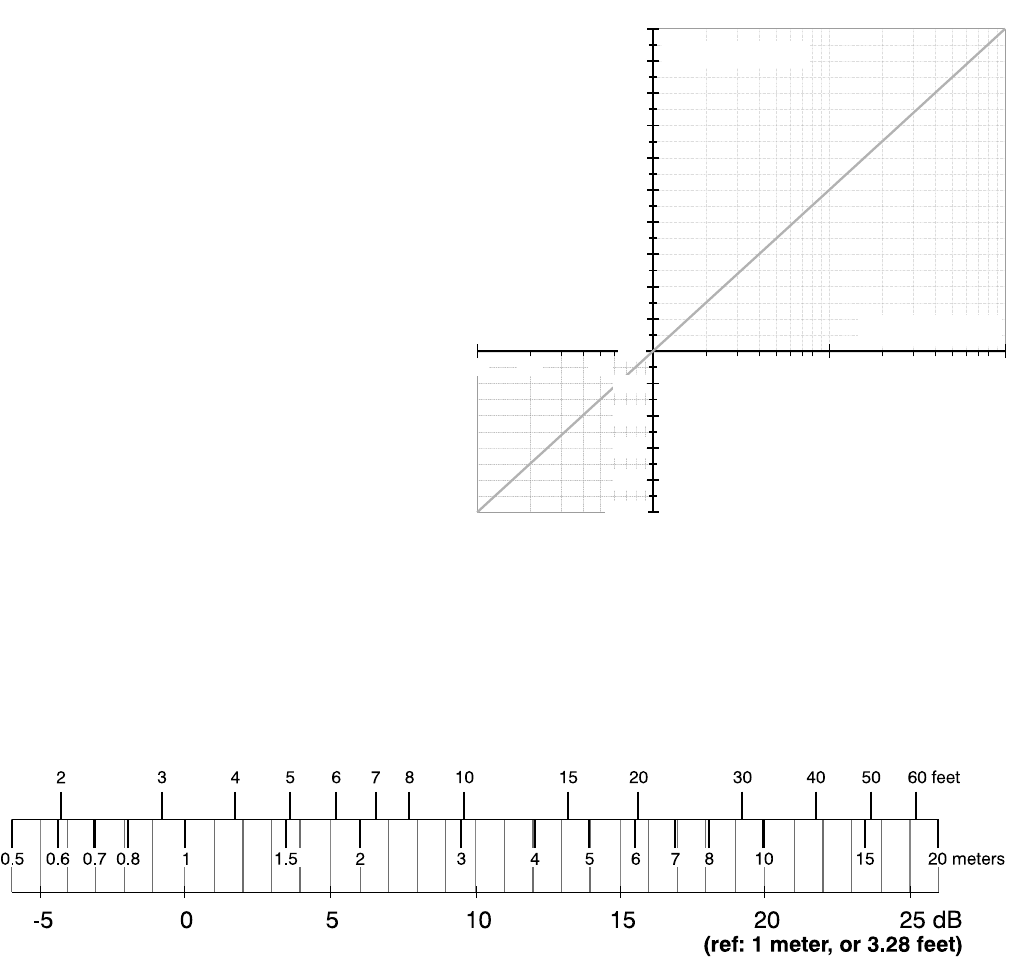
22
-10.0
-8.0
-6.0
-4.0
2.0
4.0
6.0
8.0
0.5
10.0
12.0
14.0
16.0
18.0
20.0
0.1 10.2 10 1005 20 502
0.0
dB(ref1watt)
Power(Watts)
-2.0
DETERMINING POWER LEVELS
After you’ve determined where to place the loudspeakers, you need to calculate the power each one requires.
If the installation is in an existing facility already in use, use an SPL meter, set for slow response, to measure
the A weighted ambient noise at the listener’s ear position. Try
to take this measurement at the noisiest time—in a factory,
when the machines are running; in a restaurant, when it’s full
of patrons, etc. Background music will require an SPL at least
10 dB above the ambient noise. For good paging intelligibility,
you’ll need an SPL approximately 15 dB higher than the
ambient noise; 25 dB above ambient will yield excellent
intelligibility.
Next, use the distance from the loudspeaker to the listener’s
ears, along with the loudspeaker’s sensitivity rating (typically
expressed as “
n
dB @ 1 watt, 1 meter,” which means
n
dB of
SPL with 1 watt input, measured at a distance of 1 meter) to
determine how much power the loudspeaker needs to get from
the distributed line. Use the inverse square law guide below
to convert distance to dB; you’ll need to add this figure to the
desired SPL and then subtract the sensitivity rating to deter-
mine how much more or less than 1 watt the loudspeaker
requires.
Decibels
referenced to
1 watt
Distance from speaker
Power increase in dB; referenced to loudspeaker
sensitivity rating (1 watt @ 1 meter)
